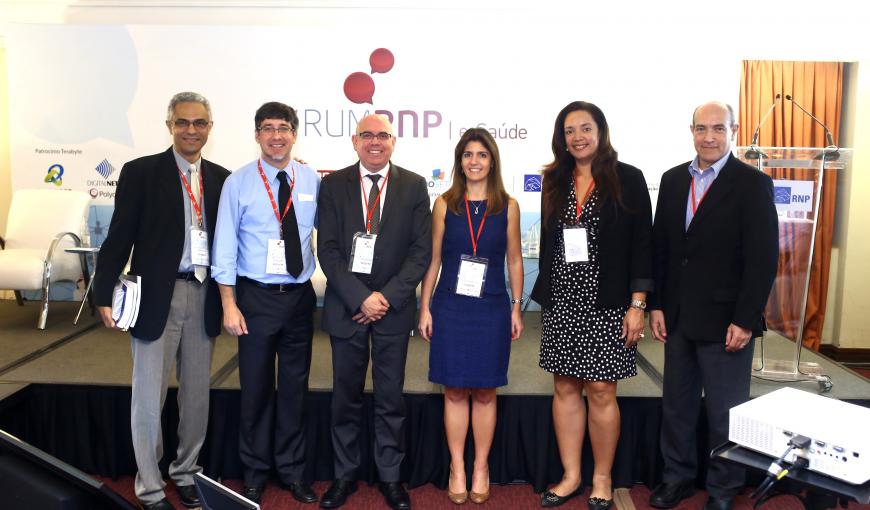Experts presented the e-Health perspective for the next five years
Prospecting for new ways of using technology to improve health in the near future was the mission of the table formed by the Brazilian Council of Telemedicine and Telehealth (CBTms) Vice-president and the University of São Paulo (USP) Professor Ana Estela Haddad, the International Medical Informatics Association (IMIA) President Lincoln Assis Moura, and the substitute coordinator of Knowledge Management at the Department of Science and Technology of the Ministry of Health Fabiana Costa.
“What should a country like Brazil expect for e-Health? We are a continental country, which must meet the requirements of the Unified Health System,” questioned Lincoln Assis Moura, from IMIA. According to him, the conclusion of a group of studies of 60 professionals invited by the Ministry of Health is that, by 2020, what is meant as e-Health is incorporated to SUS, as a health improving strategy, consistent with the health services in the country.
Within this strategy, seven pillars have been proposed, between standardization and interoperability, services and systems, governance and leadership, among others. “Information Technology is one of seven proposed pillars. We cannot forget the pillars that do not involve technology, such as leadership and human resources,” warned Lincoln.
On advances in research, the Ministry of Health Representative Fabiana Costa pointed out that Brazil is the fourth place in the health research ranking, according to the 2003 CNPq data. Only in 2013, BRL 121 million were invested in 5,004 projects.
Fabiana Costa highlighted the importance of using scientific evidence for the public policies development within the Brazilian Network for Technology and Health Assessment (Rede Brasileira de Avaliação Tecnologia e Saúde - REBRATS) and the EVIPNet network, which promotes the systematic use of research evidence in healthcare decision-making. “The summaries for informed policy by evidence to collaborate to the decision making of the manager, the consolidation of research funding, and the optimization of resources,” he said.
Ana Estela Haddad, from CBTms, presented the evolution of the Brazil Telehealth Networks Program, which seeks to improve the care and primary care quality in the SUS through ICT tools. “The program went from basic care to act in the attention network as a whole,” said Ana Estela.
According to her, contrary to what happens abroad, where there is teleconsultation, the teleconsulting is practiced in Brazil. “The teleconsulting consists in two health professionals exchanging knowledge, but the patient care is always in person,” she explained. "Another concept that emerged in Brazil was the formative second opinion,” she said, referring to the activity of welfare support or consulting with educational character.
